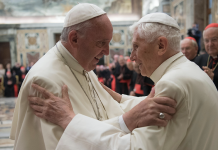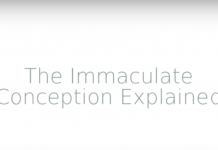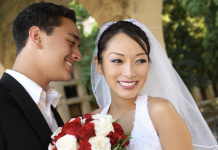
by Cullen Schippe
[CLICK
HERE]to learn more about the Center for Christian and Jewish Relations.
[CLICK
HERE]to learn more about the Franciscan Friars of the Atonement and their Week
of Prayer for Christian Unity.
I am really
quite fond of my dentist. Not only is my dentist a world-class practitioner of
family dentistry, he is a bit of a renaissance man. Whether playing a
twelve-string guitar or rehashing the highlights and low points of the Yankee
season, my dentist demonstrates that life is for living.
My dentist
has another passion that I truly admire. He is Jewish, to be sure, but he
consciously lives the spirit of Nostra aetate—the
Second Vatican Council’s Declaration on
the Relation of the Church to Non-Christian Religions. He works closely
with and is a board member of the Center for Christian and Jewish Understanding
at Sacred Heart University in Fairfield, Connecticut.
My dentist’s
passion for such a great cause makes me very aware of the kind of world we live
in. There was a time (if you will grant me a “back in my day” statement), when
the world seemed more homogeneous.
Usually, our neighbors shared our faith, and our lives seemed to revolve around
the parish church. Occasionally, somebody in the family would marry “outside the
faith,” but that seemed more the exception than the rule. We tended to hang
around with other Catholics.
Today,
things are quite different. Our neighborhoods are dotted with churches,
synagogues, mosques, and temples. The people next door might belong to an
evangelical mega-church with an arena for Sunday worship. Our neighbors might
be Mormons, Jehovah’s Witnesses, or Seventh-Day Adventists. We also see great
diversity in Christianity itself. We live and work in a sea of religious
diversity.
That does
not mean we need to live in a world of religious animosity. Part of our
catechetical task is to put our lessons on the Catholic faith into a real-world
context. A major part of the context is the simple fact that our neighbors may
not believe what we believe or understand the world the way we do.
Few of us
are equipped for inter-faith dialog or to work for religious freedom or to
effect Christian unity. In our diverse world, however, we can acquire and hand
on to those we teach three simple attitudes toward our neighbor’s faith.
The first
attitude is respect. Our neighbors take their faith as seriously as we take
ours. We need to respect them and show that respect when we talk to them or
about them. Nothing communicates a generous heart like the respect we show
those who seem different from us.
The second
attitude is understanding. Stereotypes abound when it comes to religious
diversity. As catechists, we need to do all we can to turn back the tide of
misunderstanding and point toward an ever-greater appreciation for our
neighbor’s faith. Understanding does not necessarily mean agreement.
Understanding does, however, provide a basis for the final attitude.
That
attitude is kindness. In our dealings with people of other faith traditions or
differing Christian heritages, kindness is the keystone. For freedom of
religion to continue, we need to treat one another with charity and loving
concern. People are not “isms.” To live in today’s diverse world, we need to
see one another as sincere believers who are following our consciences and
trying to live according to the rules of our faith.
There is one
more very helpful activity—prayer. More than 100 years ago, Father Paul
Wattson, who came to Catholicism from the Anglican Church, started a religious
order based on building love and understanding among people of differing
beliefs. The Franciscan Friars of the Atonement sponsor a week of prayer every
January that celebrates the understanding, respect, and kindness needed to
bring various Christians together.
I would like
to think that I could have and share the attitudes toward my neighbor’s faith
that I see in my dentist. These attitudes are furthered by men and women of
good will everywhere who do not see diversity as a barrier to our basic mission
to love one another and to pray with Jesus Christ, “that all may be one” (John
17:21).
If you would
like to learn more about the Center for Christian and Jewish Understanding, go
to ccjr.us. To learn more about the Franciscan Friars of the Atonement and
their week of prayer for Christian Unity, visit atonementfriars.org.
Copyright 2013, Bayard, Inc. All rights reserved. This article is protected by United States copyright and other intellectual property laws and may not be reproduced, rewritten, distributed, redisseminated, transmitted, displayed, published or broadcast, directly or indirectly, in any medium without the prior written permission of Bayard, Inc.
This article was written by the Catechist Staff and appeared in Catechist magazine, December 2012.
Image Credit: MIA Studio/Shutter Stock 557176453




